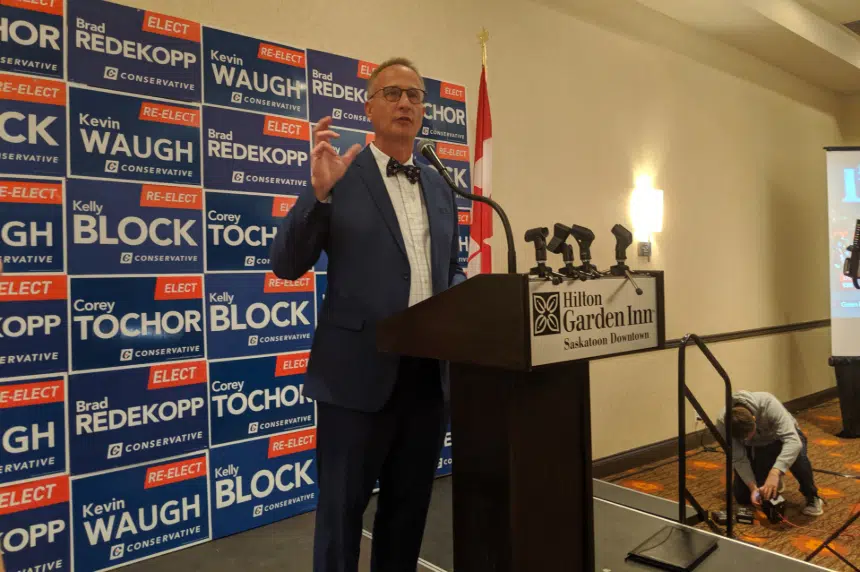One Saskatchewan Member of Parliament said he was “shellshocked” at the announcement Tuesday morning that the NDP and Liberal parties had made a deal to keep Prime Minister Justin Trudeau in power.
Corey Tochor, MP for Saskatoon-University, said the “power grab” challenges how an Opposition party is to properly hold a government accountable.
Brad Redekopp saw the deal between the Liberals and New Democrats coming.
“Since the election, I’ve been calling this a Liberal-NDP coalition and so I guess today it’s official. It’s now an NDP coalition government,” the MP for Saskatoon West said.
So it wasn’t a surprise when the agreement between the two parties was announced Tuesday morning, though Redekopp takes issue with the agreement for several reasons.
“I mean, this is simply a power grab by Trudeau. He is desperate, he’s unhappy with the way things are going so he’s looking at any way he can stay in government,” Redekopp said.
Officially, the deal is called a “confidence and supply” agreement. A coalition government would see NDP MPs eligible to be in cabinet, which isn’t happening in this instance.
Redekopp noted the NDP is also looking to secure power and has made this deal to “prop up” the Liberal Party — and Trudeau — to that end.
Tochor said seeing an Opposition in the NDP now working in the interest of the government makes him anticipate that the questions being put to the Liberals by the New Democrats gong forward will be significantly less hard-hitting.
That’s why he said Conservatives are now asking for speaking spots — which are used as opportunities for Opposition parties to question the government — that have been granted to the NDP be taken away.
“Because we know that they will probably shape their questions in a way that is flattering for Justin Trudau,” Tochor explained. “This is not what Canadians voted for.”
The agreement, in Redekopp’s opinion, is concerning.
“This is all about secrecy and backroom deals,” he said. “It’s not about democracy and accountability and that’s sad.”
The agreement stipulates that the New Democrats will support Trudeau, not putting forth a vote of no-confidence and not voting for a non-confidence motion during the term of the deal. As a result, Trudeau’s Liberals are expected to hold power until 2025.
However, Redekopp warned of the cost that comes with the deal.
“The Liberals have had to pay a price. They’ve had to make some commitments to get the NDP onside,” he said. “That will ultimately come back to Canadians as cost through taxes.
“Canadians did not elect an NDP government and the more important question here, too, is what is this going to cost us?”
Redekopp anticipated more difficulties in the future, particularly in making inquiries that could have the potential to “embarrass” the government.
“They’re going to try and protect the government every time, so it’s going to get harder and harder to ask questions and demand accountability from this new coalition government,” Redekopp explained.
Tochor said those costs could come in the form of higher taxes. As of April 1, he said an increase to the carbon tax is coming while also mentioning his own fear of a possible GST increase.
“They’ve been whispering and thinking and wanting to tax people’s homes,” Tochor said, adding various studies have been commissioned by the Liberals on that front.
“When you’re $1.4 trillion in debt, you need to raise dollars to support that debt and take on some of the new spending that will ultimately come from the NDP’s demands.”
He said Canadians — especially those living in Saskatchewan, where there is an all-Conservative MP presence — will find these increases difficult “because we know that leads to higher taxes and less opportunities for the next generation.”
Tochor pledged he and his colleagues will be “fighting as hard as we can to keep this government accountable, knowing that it has gotten much more difficult to do our roles now because of this coalition.”











